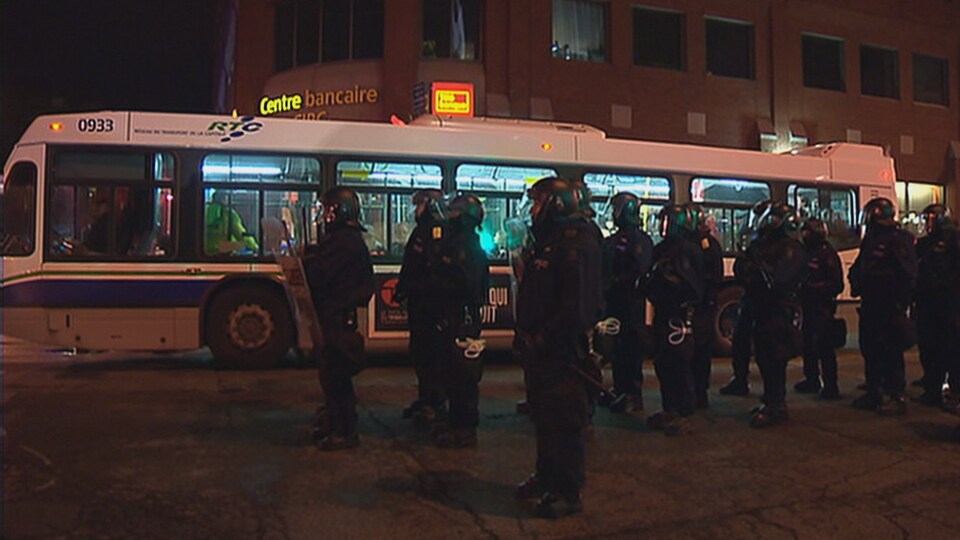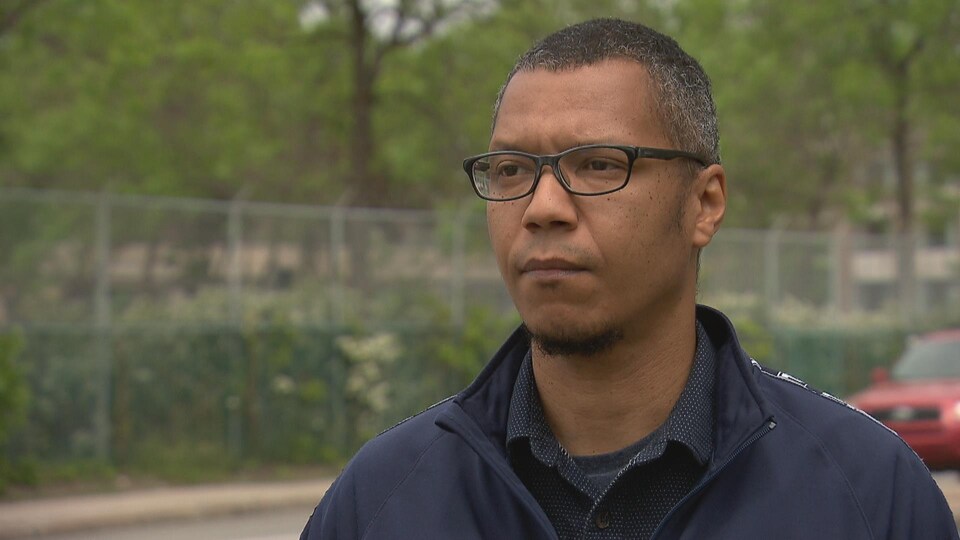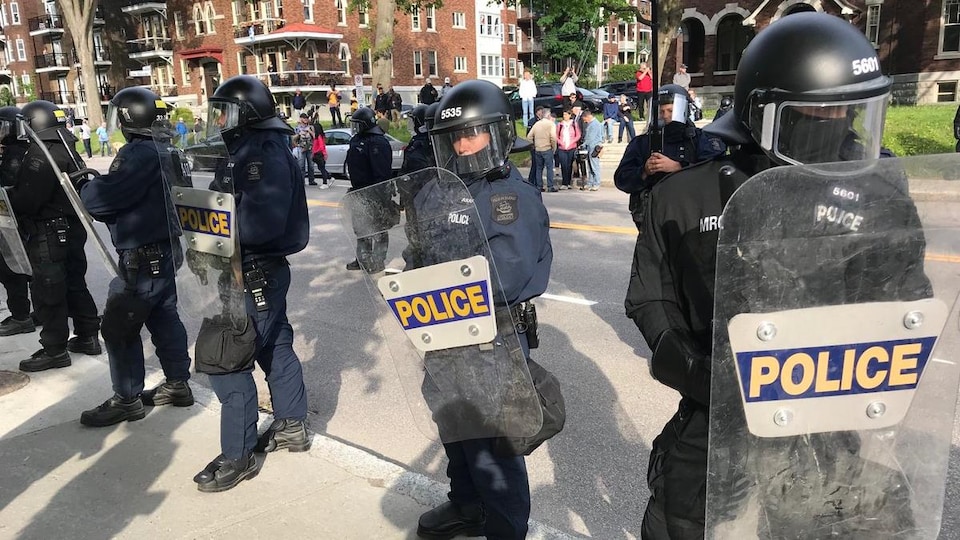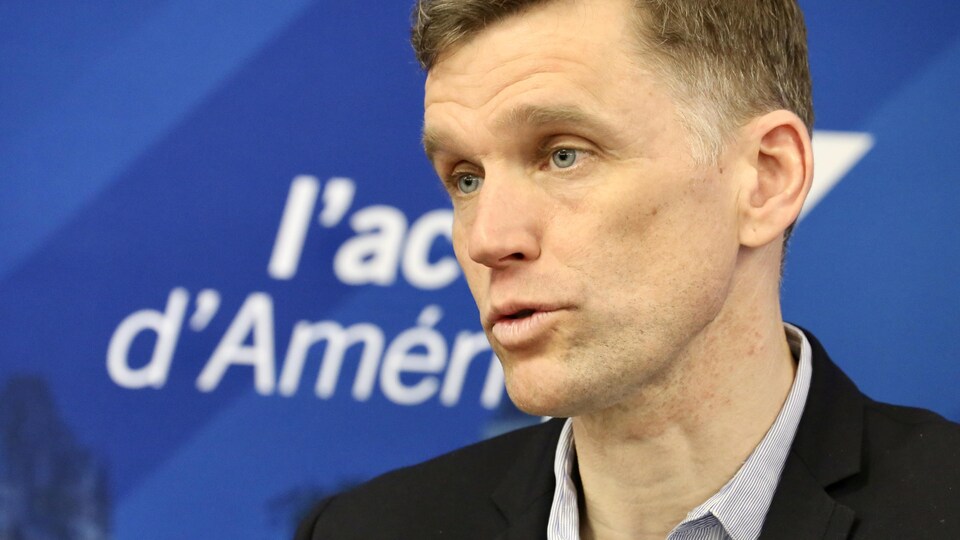The remaining regulations that originated in Maple Spring, but have been declared unconstitutional by the courts for nearly three years, can still be seen in Quebec City regulations. Regretting a source of “confusion” that is likely to damage mobilization in the capital, the League of Rights and Freedoms is calling for their repeal without delay.
The elements in question can still be found in the official version of the Peace and Good Order Regulations, described as updated to 1eh May 2022 on the City’s online portal.
The article in question, 19.2, states that it is a person is prohibited from holding or participating in an illegal demonstration on public property. According to paragraphs 1 and 2, a meeting is considered unlawful if the organizers did not provide a demonstration route in advance or if the latter was not respected.
These measures began on June 20, 2012, in response to numerous Maple Spring demonstrations held in Quebec City. So they offered police officers from the Service de police de la Ville de Québec (SPVQ) new tools to facilitate the gatherings and resulted in several arrests.
The provisions, however, were removed by the Court of Appeal in October 2019. The county’s highest court ruled in favor of a protester who was arrested and fined under 19.2.
Citations deemed unconstitutional have not been repealed by the City since.
Prevents and confusion
For the League of Rights and Freedoms (LDL), maintaining these measures in regulations despite the judgment poses a problem for the right to appear. This leads to situations where people don’t really know which foot to dance toargues Maxim Fortin, coordinator of LDLsection of Quebec.
He regrets to see that groups are currently subject to regulatory measures that no longer apply by providing their itinerary, for example. Some bands prefer to play safe and comply with a regulation that has expiredhe says, worried that this training will be a standard of self.
In a letter addressed to Mayor Bruno Marchand in late April, Mr. Fortin asserted that traces of the past are still influential. He sees the potential dissuasive effect for groups or citizens who want to mobilize.
Mr. Fortin recalled that the by-law provides for fines of $ 150 to $ 1,000. According to him, the repeal of this provision is essential to ensure the full exercise of the right to appear.
It is important that municipal regulations are updated following court decisions so that citizens are fully informed of the regulations in force and are not prevented from fully exercising their rights.he wrote to the mayor of Quebec.
Ang LDL expect a quick reaction from elected officials.
” On June 20, article 19.2 will be 10 years old, we don’t want it to reach this respectable age. “
In other words, he gave the Marchand administration less than a month to submit the repeal of the bylaw to the municipal council.
If the situation does not seem urgent right now, the human rights activist invites us not to wait for the people’s struggle to gain momentum.
There is little struggle and little tension in the struggle [actuellement]he said. So groups can say to themselves: “We can put safety before principles”. But very quickly, this logic will catch up with us.
Inappropriate pressure
Vania Wright-Larin, coordinator of the Regroupement d’éducation populaire en action communautaire de Québec et Chaudière-Appalaches (RÉPAC 03-12), said she also observed the influence of 19.2 on the ground. Something vague will put a brake on the organization of demonstrations for many groupshe was afraid.
If his organization is already accustomed to mobilizations and to taking up public space to be heard, it is not certain that most organizations, or even ordinary citizens, are aware of the verdict given by the Court’s appeal.
According to him, the fact that 19.2 is still visible without specific mention in the Peace and Good Order Regulations could create a chilling effect. According to him, the organizers could feel a potential demonstration pressure to be responsible for everyone participating in a protest and thus avoid taking risks.
In retrospect, Mr. Wright-Larin denounced the establishment of regulations seen as short -term solution but had not been tried by the courts ten years ago. He regrets that it took legal challenges following the arrests to achieve the victories to protect the right to appear.
Like Maxim Fortin, he hopes for a speedy rectification of regulations.
Regulatory update
Quebec City insists in part that the provisions of its by-law that were invalidated in 2019 have not been applied by police since the Court of Appeal’s ruling.
The police service continues to facilitate demonstrations to ensure peace and good order, in collaboration with the organizers and various partners.added David O’Brien, spokesman for Quebec City.
The latter confirmed in the passage that a reflection had been initiated within the municipal administration to change the By-law to peace and good order. The City, he said, plans to fix it and submit to the city council by the end of 2022.
The same story was captured in the town hall office. The police have never committed offenses since the convictioninsisted Thomas Gaudreault, press officer for Bruno Marchand.
If the company thinks that the right to protest is essential to a healthy democracyhe said temporarily relying on the administrative process initiated by the City. Legal services are looking into the matter for possible adjustments as soon as possible.
The Mayor of Montréal, Valérie Plante, experienced a similar situation with a by-law of the same nature adopted by the Denis Coderre administration in the spring of 2012. By-law P-6, which provided for an obligation to provide an itinerary, expired in court in 2016.
He was officially removed by Valérie Plante in November 2019, a few weeks after a ruling on Quebec regulations.
Source: Radio-Canada



